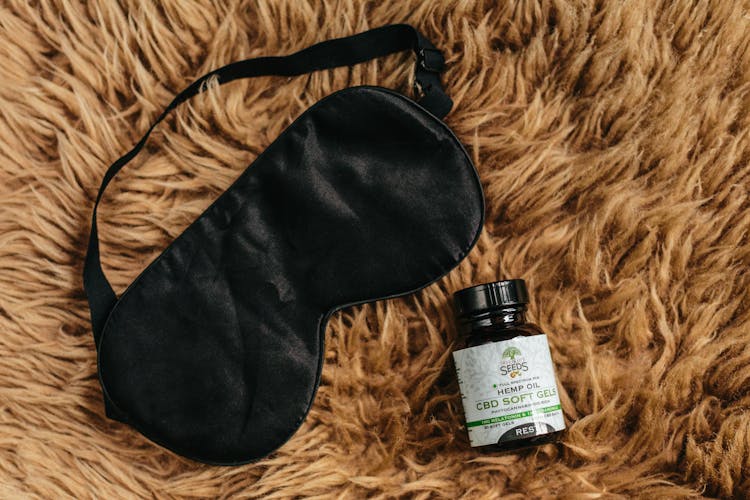Table of Contents
TLDR Summary
- 😌 Prioritize relaxation to enhance mental health.
- 🏋️ Physical activity is key for stress relief.
- 🧘 Mindfulness practices lead to better mental well-being.
- 🌱 Maintaining a healthy diet is vital.
- 💤 Adequate sleep improves stress management.
Finding reliable strategies for stress reduction is vital for your overall well-being. Achieving relaxation can significantly impact your physical and mental health. Regular exercise is not only a great way to boost your mood but also reduces stress hormones like cortisol. A brisk walk for just 30 minutes can make a noticeable difference in your demeanor. Additionally, practices such as deep breathing, mindfulness meditation, and guided imagery can help elicit the relaxation response. This state can lower heart rate, decrease blood pressure, and promote a sense of calm, making mindfulness a cornerstone of effective stress management. The importance of sleep can’t be overstressed: aim for at least seven to eight hours of quality sleep each night to support your body’s ability to handle stressors effectively.
For more tips on relaxation techniques, explore HelpGuide. Integrating relaxation into your daily routine is essential; practices like yoga can also reduce anxiety levels while providing necessary flexibility and physical benefits.
When managing stress symptoms, focusing on a nutritious, balanced diet is paramount. The foods we consume can influence our mood and overall health. Consuming a predominantly plant-based diet can provide the nutritional support our bodies need while mitigating the risks related to diet-induced diseases, promoting better mental health. Avoid unhealthy habits that may seem appealing in the short term, like relying on alcohol or smoking as stress relief methods; these often lead to more significant health issues down the line. Physical exercise not only relieves tension in muscles but also produces feel-good chemicals like endorphins, which foster a positive emotional state.
Connecting with others can also serve as a powerful mechanism for managing stress. Building a robust social network will not only help you cope with stressors but also provide emotional support to navigate through tough times. Make the time to indulge in hobbies you enjoy or participate in social events to keep your spirits high. Volunteering and helping others can also serve to reduce stress by shifting the focus away from your challenges to supporting those in need. Engaging in community service has been correlated with increased personal resilience, fostering a communal bond that can serve as a buffer against stress.
Top Strategies for Reducing Stress
Beyond traditional methods, practical daily habits can further augment stress management efforts. Utilizing positive self-talk is one effective strategy; by consciously replacing negative thoughts with positive affirmations, you reinforce a more optimistic outlook, which could significantly reduce perceived stress. Additionally, managing your social media exposure is crucial, as excessive time online can lead to heightened anxiety. Limit your time on social platforms by setting boundaries and designating specific times for checks; you'll likely find a positive shift in your overall mood and peace of mind.
Additionally, noise pollution can trigger stress responses in the body. Thus, creating a calm environment is essential for relaxation and focus. This can be achieved by reducing exposure to loud sounds and curating soundscapes that promote tranquility, such as soothing music or nature sounds. You may also create a designated personal space that fosters serenity and helps you unwind and recharge.
Support Systems: When to Seek Professional Guidance
If feelings of stress become overwhelming or unmanageable, seeking professional advice is a prudent step. Healthcare providers and mental health specialists possess the training and resources required to guide you through complex emotional states. Techniques such as Cognitive Behavioral Therapy (CBT) and mindfulness-based approaches have shown effectiveness in reducing stress and providing the tools needed to bounce back from overwhelming situations. Engaging with a professional can also offer a safe space to explore feelings, set realistic goals, and develop coping strategies tailored specifically to your needs.
In the search for relaxation, consider investing in high-quality relaxation tools that can enhance your experience. For instance, options like the RELX Massage Chair can provide soothing full-body relief, helping to ease tension and promote relaxation after a long day. Embracing these affordable tools can transform your approach to relaxation, making it more attainable and enjoyable.
Unlocking Calm: The Benefits of Mindfulness
Incorporating mindfulness into daily life further cultivates relaxation and reduces anxiety. By anchoring your attention to the present moment—be it through meditation or simple breathing exercises—you pave the way for a clearer mind that can handle stressors more effectively. Mindfulness helps establish a strong foundation for emotional resilience, enabling better responses to stressful situations and a more balanced perspective on challenges. It also fosters a deeper awareness of your surroundings, enriching your daily experiences while minimizing anxiety.
Integrate mindful practices into your routine by designating specific "mindful moments" throughout your day. This might include short breaks to focus on your breath, savoring your meals without distractions, or even dedicating time to a gratitude journal, where you reflect on positive aspects of your life. These small but impactful practices can gradually lead to monumental shifts in your mental landscape, making you more adept at handling stress as it arises.
What are some practical relaxation techniques?
When should I seek professional help for stress management?
Core Lessons for Mastering Stress
Key Takeaways- 💪 Regular physical activity reduces stress.
- 🧠 Mindfulness enhances emotional resilience.
- 🍏 A balanced diet is crucial for mental health.
- 👥 Building a support network mitigates stress.
- 💆 Professional help is available when needed.

Discover important details now
Navigation
Latest Posts
Elevate Your Shine: Cleaning Your Diamond Ring
Top Water Damage Restoration Companies to Know
Top-Rated Companies for Water Damage Repair